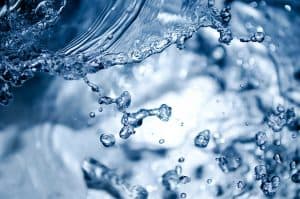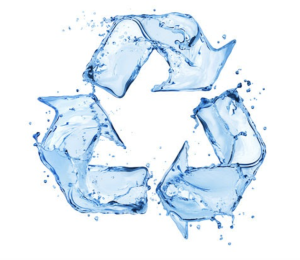Commercial water treatment directly affects your business operations, influencing product quality, equipment longevity, and regulatory compliance. Whether you run a restaurant, manage a healthcare facility, or operate a manufacturing plant, the quality of your water supply matters.
Poor water quality creates tangible problems: scale buildup damages expensive equipment, contaminants compromise product standards, and failing to meet regulatory requirements can halt operations entirely. Conversely, effective water treatment protects your investment in machinery, ensures consistent output quality, and keeps your business compliant with industry regulations.
This article examines commercial water treatment systems in detail. You’ll learn about the different system types available, how various industries apply these solutions, and the practical benefits they deliver. Understanding
What is commercial water treatment?
Commercial water treatment purifies and conditions water to meet the specific operational requirements of businesses. The process differs fundamentally from residential treatment systems, which primarily ensure water is safe for drinking and household tasks.
How commercial systems differ from residential ones
The most apparent difference lies in scale. Commercial systems process substantially larger volumes of water – often thousands of litres daily – to support business operations. A restaurant kitchen, hospital ward, or manufacturing facility requires far more treated water than a typical household.
The range of contaminants also expands considerably. Whilst residential systems typically address common issues like chlorine taste or limescale, commercial installations must remove industrial pollutants, heavy metals, organic compounds, and specialised contaminants specific to each sector. A pharmaceutical facility faces different water quality challenges than a hotel laundry service.
Commercial systems are also tailored to industry-specific needs. Healthcare facilities require water that meets stringent microbiological standards. Food service establishments need systems that can handle grease and organic matter. Manufacturing plants might focus on removing minerals that interfere with production processes.
What commercial water treatment removes
Your commercial system will typically target four main categories of contaminants:
- Microorganisms including bacteria, viruses, and protozoa that pose health risks or affect product quality
- Chemical pollutants such as chlorine, fluoride, pesticides, and various industrial chemicals
- Heavy metals including lead, mercury, and arsenic
- Particulate matter like sand, silt, and rust particles that can damage equipment or affect water clarity
The specific contaminants your system addresses will depend on your water source, local environmental factors, and your business’s operational requirements.
Benefits of Commercial Water Treatment
Installing a commercial water treatment system delivers measurable advantages across multiple aspects of your operation. The benefits extend beyond simply having cleaner water — they affect your bottom line, operational reliability, and ability to compete in your market. Let’s examine the key benefits you can expect.
Improved product quality
Water quality affects your final product directly, particularly in food and beverage production and pharmaceutical manufacturing. Contaminants in untreated water can alter taste profiles, compromise safety standards, or reduce product efficacy. Treatment systems remove these impurities before they reach your production line, ensuring consistent output that meets your quality specifications.
Regulatory compliance
Many industries must meet water quality standards set by Ofwat and local health departments. Non-compliance carries serious consequences: fines, operational shutdowns, and reputational damage. Commercial water treatment systems provide the control you need to meet these regulatory requirements consistently, protecting both public health and your business licence to operate.
Cost savings
Water treatment represents an investment that reduces operational expenses over time. Untreated water containing minerals and sediment accelerates equipment wear, increases energy consumption, and demands frequent maintenance. Businesses that implement proper treatment systems report measurable reductions in equipment failures and energy costs. The initial system cost is typically recovered through lower repair bills, extended equipment life, and reduced downtime.
Enhanced operational efficiency
Clean water keeps your operations running smoothly. Scale buildup, corrosion, and contamination cause equipment malfunctions that interrupt production schedules. Treatment systems prevent these issues, extending machinery lifespan and maintaining consistent production quality. Facilities experience fewer unexpected shutdowns and reduce the time maintenance teams spend on equipment repairs, allowing your operation to maintain steady output.
Common Types of Commercial Water Treatment Systems
Different water quality challenges require different treatment approaches. The system you choose depends on your specific contaminants, water volume requirements, and operational needs. Commercial water treatment systems fall into several categories, each designed to address particular issues.
Filtration systems
Different filtration methods address various contaminants.
- Activated carbon: removes chlorine, bad tastes, and odors.
- Reverse osmosis: eliminates a broad range of contaminants, including dissolved salts and heavy metals.
Both of them are suitable for industries requiring high-purity water, such as pharmaceuticals and electronics manufacturing.
Softening systems
Water softeners prevent scale build-up in pipes and machinery, protecting equipment and reducing maintenance costs.
The softening systems are common in industries where hard water causes operational issues, such as laundries and car washes.
Disinfection systems
Disinfection methods like UV treatment and chlorination ensure water is free from harmful microorganisms.
They are essential for providing safe drinking water and ensuring sanitary conditions in healthcare and hospitality.
Deionisation Systems
Deionisation removes ions from water, producing highly purified water for specific industrial applications.
They are used in laboratories, electronics manufacturing, and any industry requiring ultra-pure water.
Industry-Specific Applications
Manufacturing
Water treatment maintains product integrity and protects machinery from contaminants that can cause damage and inefficiency.
Food & Beverage
Ensures the safety and quality of consumable products by removing harmful substances and improving water taste and consistency.
Healthcare
Provides safe water for medical procedures and equipment sterilization, preventing infections and ensuring patient safety.
Hospitality
Enhances guest experience by providing clean water for cooking, bathing, and drinking, contributing to overall satisfaction.
Conclusion
Investing in commercial water treatment is crucial for businesses aiming to improve product quality, comply with regulations, save costs, and enhance operational efficiency. By understanding their specific water needs and choosing the right treatment systems, businesses can ensure their operations run smoothly and sustainably.
Assess your water quality today and consider upgrading your water treatment systems. Contact Wychwood Water Systems for a consultation to find the best solutions tailored to your business needs.





